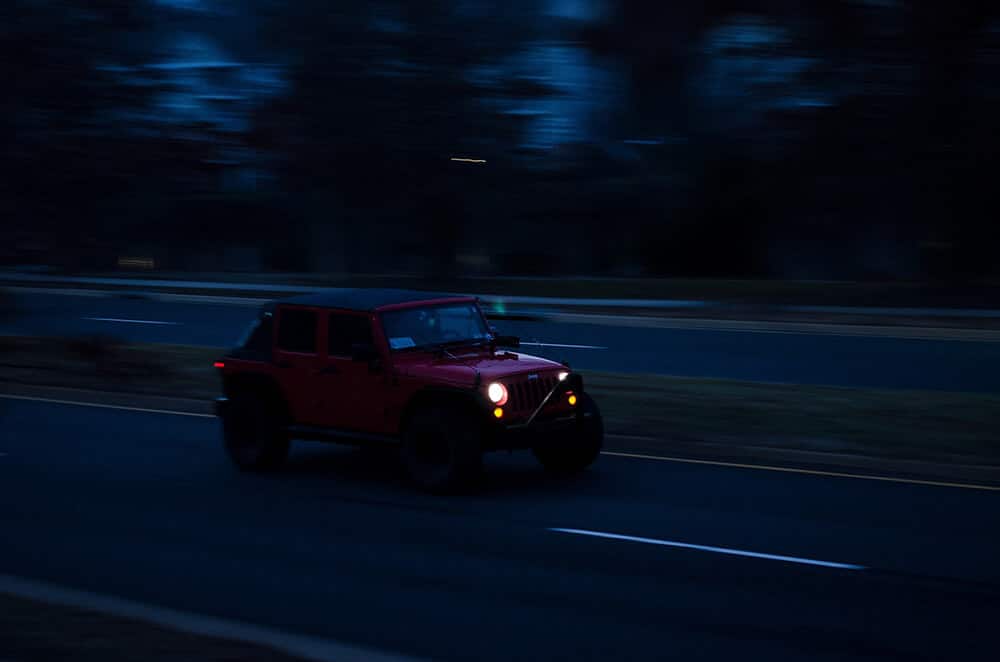
Most people don’t prefer to drive in the dark, especially for long distances, but sometimes it’s unavoidable. When that’s the case, it’s best to take as many precautions as possible since it can be a dangerous time to drive. Road fatalities triple during the night, according to research by the National Highway Traffic Safety Administration (NHTSA).
In West Virginia, you’re not only at risk of hitting an animal, but you might also come across a drunk driver. That same research from NHTSA presents that drunk driving is the leading cause of fatalities in nighttime crashes in West Virginia, but speeding doesn’t follow too far behind. On top of that, the National Sleep Foundation ran a study where 3% of drivers admitted to falling asleep behind the wheel.
Sure, headlights help you see through the dark, but visibility is still limited. And just because you can see doesn’t mean that you can predict what other drivers are doing at night. Even though you can’t always prevent a car accident, here are some tips for prioritizing safety when driving long distances at night:
- Wear your seatbelt. If you’re trying to be safe while driving at night, you should wear your seatbelt. First of all, it’s West Virginia law. You’re legally supposed to wear your seat belt at all times when you’re in the car. Other than that, the NHTSA reports that of fatal nighttime accidents in West Virginia, 73% of passengers weren’t wearing their seat belts. Seat belt use reduces the risk of death by 45%, according to the Centers for Disease Control and Prevention (CDC).
- Don’t speed. This will increase your safety at any time of day, but reducing your speed at night especially can help you avoid collisions with animals and other drivers. The same NHTSA article from above reports that speeding at night increases the chance of death in a crash by 16% compared to speeding during the day. By slowing down, you have more time to react if you need to, and it also gives you more room to brake before a wreck.
- Use strong headlights. Low light plays a major role in nighttime accidents, as reported in a study published by British Medical Journal’s Injury Prevention. Make sure your headlights work properly and are clean so that they are as bright as possible. And when you’re able to, use your high beams so you have higher visibility. If it’s foggy, use your fog lights, not your high beams.
- Keep your eyes moving. If your eyes are still, not only are you more likely to fall asleep, but you also aren’t seeing everything you need to while driving. You should constantly be scanning your surroundings so that you can spot drunk drivers, drivers who have fallen asleep, or any animals approaching your path.
- Look for retinas. Animals have a film in their eyes called the tapetum lucidum that reflects light and gives them night vision. When headlights are shining at them, this makes their eyes reflective and bright, so they are easier to spot on the side or in the middle of the road.
- Listen to something stimulating. Whether you choose energizing music or an engaging podcast, listening to something while driving at night can help you stay awake and focused. But loud music can distract you, so keep any audio at a regular volume for maximum efficiency.
- Don’t look into the headlights of oncoming traffic. Looking into the headlights of other drivers can harm your vision, especially when you’re driving at night. Since it’s dark, other drivers might be using their high beams and fail to dim them when they approach you. AAA recommends that you look away from the lights and focus your eyes on the road in front of you.
- Clean your windshield. Other drivers’ headlights might cause a glare on your windshield, especially if it is dirty. To avoid any glare or trouble seeing, you should make sure that your windshield is cleaned and clear. This allows you full visibility while driving for long distances at night.
Being attentive while driving is always the best way to prevent a car accident. But taking all of these precautions can also help you be as safe as possible while driving at night.
DiPiero Simmons McGinley & Bastress, PLLC Will Fight for You
A car accident can be debilitating. Depending on your injuries, you could have crushing medical bills, time off work, and trouble returning to your day to day life. If you’re struggling after a car wreck in Charleston, WV, you could benefit from a car accident lawyer from DiPiero Simmons McGinley & Bastress, PLLC. We are experienced attorneys who will dedicate ourselves to getting justice for you. As a step toward your recovery, contact us to set up a free case evaluation.







